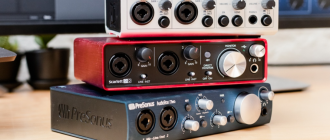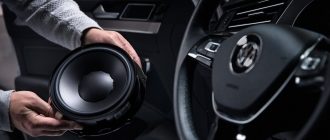
With the assistance of our partners, we have tested about 20 musical synthesizers. Feedback from real buyers was also taken into account. The rating helped to create an online store of musical instruments.
A synthesizer is a versatile musical instrument that converts electrical signals into sounds. It allows you to create unique melodies by experimenting with rhythms and sound styles. Distinguish between professional and amateur models of synthesizers. The choice of the right instrument depends on the goals - simple and inexpensive options are suitable for training and hobbies, and for professional music-making, you should buy synthesizers with a maximum of functions and capabilities.
You can safely choose any synthesizer from our rating, the main thing is to consider who the instrument is being bought for!
How to choose a good product, what to look for
When choosing a good synthesizer for home or professional use, there are several crucial criteria to consider.
Sound range. Sound range refers to the number of octaves for musical performance. An instrument with a large number of keys provides rich and rich sounds. Different genres of music require different octaves. To play light jazz melodies or simple popular hits, five or six octaves are enough, which corresponds to 61 or 76 keys. Classical pieces of greater complexity and virtuosity should be played on eight octaves or 88 keys. The larger the keyboard size of the synthesizer, the more musical possibilities it can demonstrate.
Key types. There are three types of keyboards:
- light, or passive, which form sounds of a given volume, regardless of the efforts of the musician himself;
- semi-weighted with keys of different sizes, pressure-sensitive;
- weighted - similar to the keys on a grand piano, providing the most expressive and deep sound.
For beginners, a simple, inexpensive synthesizer with a light keyboard is fine. With time and experience, you can master weighted and semi-weighted versions, designed for more serious musical experiments.
Built-in helper programs. Some synthesizer models contain tutorials. Key illumination, display hints, and play-by-play for missing chords help beginners get up to speed with musical science. Such devices with interactive assistants will be an excellent choice for those who are just learning to play the synthesizer, regardless of age.
A set of timbres and styles. The synthesizer models also differ in the number of built-in Voices and Styles. Voices simulate the sound of various musical instruments, and Styles are responsible for arrangements and rhythms that are characteristic of certain styles of music. The more extensive this set is, the more opportunities and prospects for creativity open up.
Synthesizer choices
For each purpose, it is important to choose the right type of synthesizer.
For a child as a gift you can safely present a special children's model of the synthesizer. It is designed with age characteristics in mind. The small-sized keyboard is most convenient for pressing with children's fingers, but is not intended for learning.
Those who wants to learn the basics of the game, you should choose simple four or five octave synthesizer models.Learning is easier and faster with built-in assistive technology and keyboard backlighting.
A synthesizer with auto accompaniment is the best choice for amateur musicians, as well as for those who are engaged in musical accompaniment of all kinds of celebrations and holidays.
For professionals you should opt for models of 5-6 octave synthesizers with polyphony of at least 64 voices and a weighted keyboard. And for work in recording studios, synthesizers with a sampling function, an arpeggiator and a sequencer are needed.
TOP synthesizers and digital pianos for learning
The best synthesizers for home and for kids
Rating of digital pianos and synthesizers for professionals





